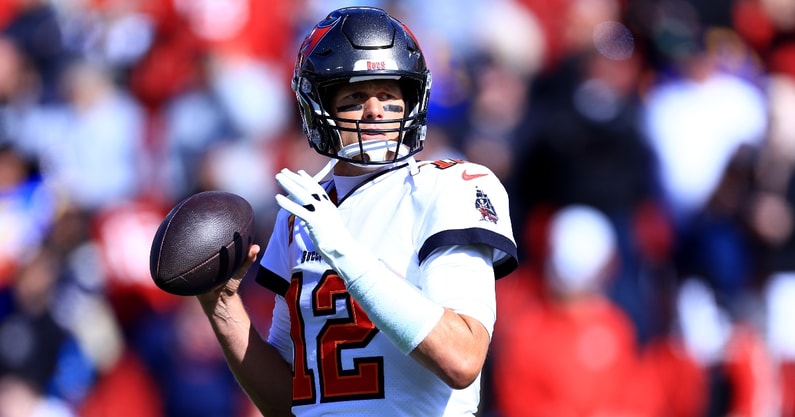Tom Brady goes in-depth on his love of football

Tom Brady loved all the success he had while playing football, but the reason for loving the game goes much deeper. While appearing on The Pivot Podcast, the seven-time Super Bowl champion quarterback explains why he loves football.
“It was never to be a champion, I love just throwing the football,” Brady said. “When I throw the football and I see that ball spiral out of my hands, I’m like ‘Woo! Love that! You guys want to go to the beach? Let’s throw the football.’ I’ll have a hell of a time. We would laugh, we would probably play for three hours out there.
“…When I got older, I actually liked the practices more than the games,” Brady continued. “I felt like I had such high expectations in the game, like if I went out and threw two interceptions, ‘Oh Tom Brady threw two interceptions. You’re Tom Brady. You’re supposed to be perfect out there. You can’t f— up in the game.’ But in practice, no one was watching, I could have a little more fun. I could be a little more lighter.
Brady went on to talk about how he got “too serious” when he got older due to the games not being as enjoyable as practices. Because of that, the 46-year-old says he’s going to enjoy his next phase of life a little more.
Top 10
- 1Breaking
Quinn Ewers drafted
Texas QB off the board
- 2
Dick Vitale
Bold Shedeur Sanders prediction
- 3Trending
Mel Kiper
Eviscerates NFL: 'Clueless'
- 4Hot
Costly fall in NFL Draft
How much plummet costs Shedeur Sanders
- 5
Prank Callers revealed
Video of Shedeur Sanders prank callers
Get the On3 Top 10 to your inbox every morning
By clicking "Subscribe to Newsletter", I agree to On3's Privacy Notice, Terms, and use of my personal information described therein.
Along with his love for football, Brady’s approach to the game was a big reason for winning as much as he did. On the podcast, the former New England Patriots and Tampa Bay Buccaneers quarterback talked about playing angry.
“To me, anger was a great way for me to approach the field,” Brady said. “I could not look at you on the field and — Ryan when you take your stuff off [and we’re] off the field, great — Ryan the Steeler, you wanted to kill me and I wanted to kill you. That’s just the way it was. Not literally, but I just wanted to make sure that we did our job and I think when you’re out there on the field that was a gladiator persona for all of us. When I walked off the field, I didn’t have to be that person anymore, which was good because I didn’t want to be that person in my everyday life.”
On’3’s Dan Morrison contributed to the story.